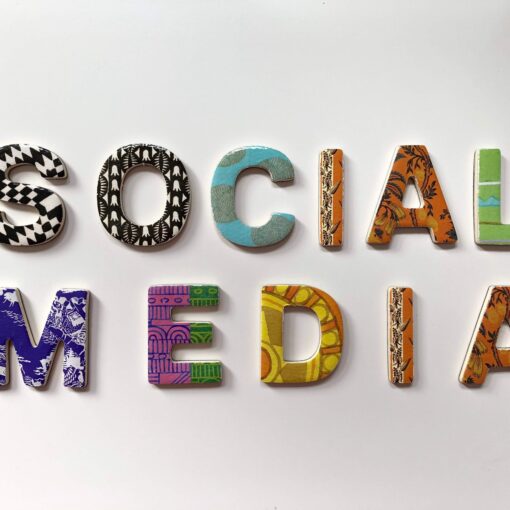
Imagine you’re at a party, and the room is buzzing with chatter. You spot a group huddled around someone sharing an outrageous story—everyone’s laughing, leaning in closer, hanging on every word. Now, wouldn’t it be grand if your social media posts could capture that same electric atmosphere? In the world of digital marketing, understanding the psychology behind social media can turn your bland posts into must-see events that have followers flocking like moths to a flame.
But here’s the kicker: while cat videos and memes might get likes, they don’t always translate into meaningful engagement or sales. What truly hooks an audience isn’t just flashy graphics or trending hashtags; it’s tapping into their emotions, desires, and even fears. So grab your metaphorical magnifying glass as we delve deep into the psychology of social media—a treasure trove of insights waiting to transform your digital marketing strategy from forgettable to unforgettable.
Social media and digital marketing are dominating today’s markets. Social media, in particular, is an effective marketing tool because it allows for individuals or companies to reach a large populace with minimal cost. Most social media sites such as Facebook, Twitter and Instagram do not charge users to post on them, which allows for people of any socioeconomic status to use the platform.
The term social media is used to describe the use of internet-based technologies to interact with each other, typically with the goal of entertainment or information-sharing. Digital marketing is a strategic marketing practice that recognizes how consumers have changed in recent years. Companies are now trying to connect with people where they live, work and play. The psychology behind these two phenomena can be explained by theories such as Maslow’s Hierarchy of Needs and the theory of social comparison.
The advent of social media and the internet has changed the way we interact with people and society as a whole. With the ability to send messages instantly and share thoughts, opinions, and content globally, we experience a sense of instant gratification. As marketers turn to social media marketing to reach their target consumers on these platforms, they also see the benefits, such as reaching a wider audience with minimal expenses.
Understanding the impact of social media in the psychology of your company is critical.
When you examine the behavior of your target market, it is weird to believe that technology and psychology are so intimately intertwined. The importance of social media in your company’s digital marketing strategy cannot be overstated, despite the fact that it is still a baby in terms of commercial adoption. Facebook and Twitter have grown to be such a significant part of global society that the psychology of human relationships and behavior has changed as a result. It is critical that you take a psychological approach when developing your social media strategy in order to ensure that it reaches our ever-changing global society.
Individualism
Instead of thinking of your social media platform as a way to reach out to your whole market, consider it an opportunity to demonstrate to each person that they are valued. In recent years, the Internet has evolved into a mirror of society’s new online identity, making it more impossible to distinguish between the individual and the crowds. If you want to avoid being overlooked in a crowd, make sure that each individual with whom you engage feels noticed and valued.
People like feeling like they are a member of a group.
It seems to be a contradiction, doesn’t it? Well, psychology is complicated, and your market is complex as well; this is something that you should never forget! While your person wants to be recognized for their efforts on the internet, they are also there in the first place because they wish to be a member of a social networking site such as Facebook. Attend to this and make the individual feel noticed while making the bigger group seem exclusive. When the Internet is overflowing with material, it is critical to establish divides among the users. If you take care of their security as individuals as well as a group, you will boost their desire to participate with your organization.
Content With an Emotional or Intimate Impact
Customer engagement is essential for both new and existing customers alike. There is zero chance that a person will return to your website if the content inside your digital marketing efforts does not connect with them at the initial engagement with them. Consider who your target market is, how they interact on social media, and what their actions indicate about your brand or company. Before you ask your market to listen to you, pay attention to what they have to say.
Provide Your Customer with A Reward
Allow your customers to know that by being a member of your company, they are contributing to something worthwhile. Make them feel important by calling their attention to them, for example. Make use of their name in your message to them on the social networking site that you both use. Providing them with feedback on their online persona will encourage them to return to maintain that level of participation with the community.
Conclusion
In the age of social media, using a psychological approach is the most effective method to understand your prospective customer and how to communicate with them in a positive manner. In the event that they like you and your business, it is likely that they will spread the news about you and your organization. In recent years, the prospect of advertising your company via digital marketing has been more prevalent. Today, it is critical to understand how to manage the delicate online connections that you have with your customers and prospects.
As we draw our psychological exploration to a close, remember that mastering social media isn’t just about being seen; it’s about being felt. Just like a well-timed punchline at that party we imagined earlier, effective digital marketing resonates with people on a personal level. It’s about crafting messages that evoke emotions—whether that’s joy from a relatable meme or curiosity sparked by an intriguing question.
So go forth and wield this newfound knowledge! Experiment with different strategies and watch as your audience transforms from passive scrollers into active participants in your brand’s narrative. After all, in the ever-evolving landscape of digital marketing, those who understand human behavior are not just players; they’re game-changers!
—
Suggested External Resources
The Psychology Behind Social Media Marketing
https://www.socialmediaexaminer.com/psychology-social-media-marketing/
Understanding Consumer Behavior in Digital Marketing
https://www.forbes.com/sites/forbesagencycouncil/2020/05/18/understanding-consumer-behavior-in-digital-marketing/
How Emotions Influence Social Media Engagement
https://sproutsocial.com/insights/emotions-social-media-engagement/

Kevin Collier is a seasoned writer and technology enthusiast with a passion for exploring the latest industry trends. With a background in digital marketing and content creation, he brings insightful perspectives to imhits.com on emerging technologies, innovations, and their impact on everyday life. When he’s not writing, Kevin enjoys experimenting with new gadgets and sharing his knowledge with fellow tech aficionados.





